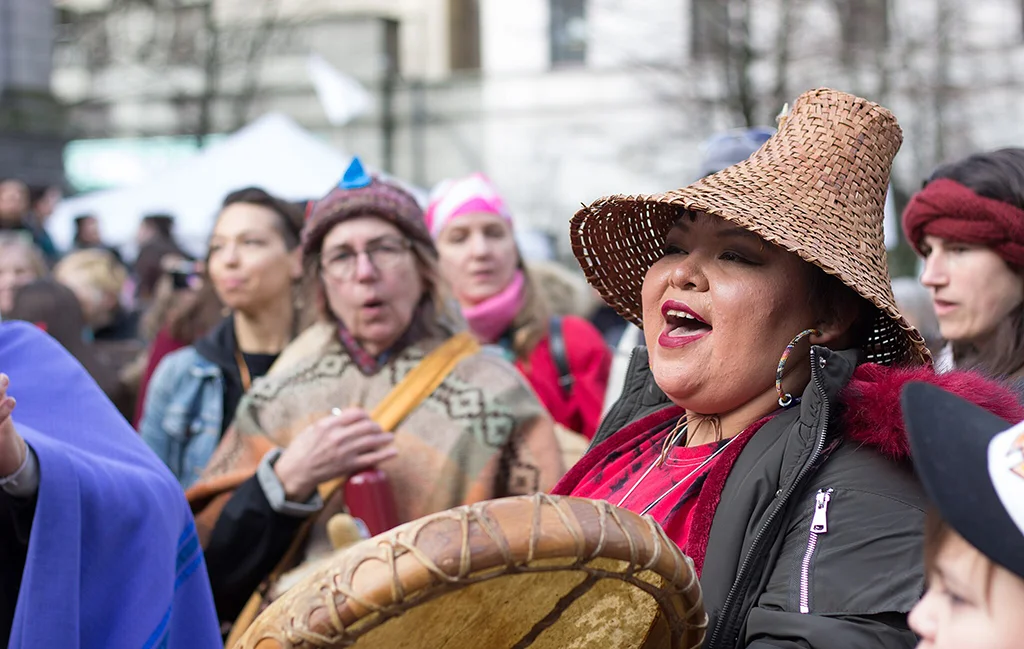A new short-term women’s shelter is opening in Downtown Eastside Vancouver, providing crucial support for vulnerable women as the region faces colder weather. Operated by Union Gospel Mission (UGM) and funded by B.C. Housing, this much-needed refuge is set to operate until the end of March, offering temporary but vital assistance to a growing homeless population. With more than 1,000 women in Metro Vancouver currently homeless, according to the latest 2023 homelessness count by the Homelessness Services Association of B.C., the shelter aims to fill a critical gap in available resources.
Located at 616 East Cordova Street, the facility offers 20 beds each night, ensuring a safe, warm place to sleep from 8 p.m. to 6 a.m. Check-in begins at 8 p.m., with priority given to those who stayed the previous night, followed by ticket holders and walk-ins, depending on availability. “There’s not enough shelter for all the women who need it in the city,” said UGM spokesperson Sarah Chew. “Homelessness puts women at greater risk of physical, emotional, and sexual violence, including human trafficking and being forced to return to their abusers for a place to sleep.” The shelter focuses on providing a secure environment where women can escape the dangers of the streets during the night.
Services Designed to Help Women Move Beyond Survival Mode
Beyond offering a safe space to sleep, the shelter provides a range of services to meet its visitors’ immediate and long-term needs. Guests can access showers, hygiene supplies, earplugs, and basic essentials each night, with laundry services available on a cot rotation every fourth night. Additionally, visitors are encouraged to engage with an experienced Case Manager who offers personalized one-on-one support. This collaborative approach helps women set goals, access further services, and take steps toward rebuilding their lives.
Sarah Chew emphasized that while the shelter is temporary, UGM hopes to secure permanent funding to continue operating beyond March. “We don’t want it to be just a temporary measure; we’re hoping we’ll be able to make this shelter permanent, somehow,” she said. The funding provided by B.C. Housing—$405,000—enabled UGM to convert a multipurpose meeting space at its Women’s and Family Centre into a fully operational, staffed shelter. The facility offers overnight accommodation and serves as a hub for referrals to critical services, including mental health support, addiction recovery programs, and housing assistance.
The shelter’s intake process ensures fairness and order. Shelter tickets are distributed at 4 p.m. daily, providing priority access to those in line. However, tickets do not guarantee a bed, as final check-in depends on availability after priority is given to previous night guests. Any remaining beds are distributed on a first-come, first-served basis until midnight. While visitors can store their belongings overnight in designated bins, they must take everything with them upon leaving the shelter in the morning.
Temporary Shelter with Potential for Long-Term Change
While the shelter currently operates on a seasonal basis, its long-term impact could be significant. UGM’s hope to transform this temporary refuge into a permanent facility reflects the pressing need for more shelters designated specifically for women. According to the 2023 homelessness count, 26% of Metro Vancouver’s homeless population identifies as female, underscoring the urgency of providing more safe spaces for women facing housing instability.
UGM’s initiative addresses not only the lack of shelter but also the systemic risks faced by homeless women, who are often forced into dangerous situations to secure a place to sleep. By offering a secure, welcoming environment and access to personalized support, the shelter provides more than immediate relief—it offers a pathway toward long-term stability. Although food services are unavailable overnight, guests can access drinking water and basic supplies. Staff members are also prepared to assist women in locating safe-use shelters for those who need it, as smoking and substance use are not permitted on-site.
With its blend of practical assistance and compassionate care, this shelter marks a critical step in addressing the homelessness crisis in Vancouver. By working toward a permanent solution, UGM and its partners hope to create a model that goes beyond temporary fixes, fostering real change in the lives of vulnerable women. As Chew stated, “They need to be kept safe from the dangers of the streets that can happen at night.” This new facility stands as a beacon of hope for women in Downtown Eastside, offering them a chance to move beyond survival and toward a brighter future.
Additional Resources for Winter Shelter Availability
For those seeking further shelter options, a comprehensive list of available winter shelters across British Columbia can be found by visiting 2024-2025 Winter Shelter Spaces Across British Columbia. This resource has been verified as of November 1, 2024, to provide up-to-date information and assist individuals and families in finding nearby shelters during the winter season. Following the link ensures access to vital support on time.
In addition to local shelters, individuals in need can access support through the Shelter and Street Help Line by dialling 2-1-1. This service, operated by BC-211, assists people experiencing homelessness in the Metro Vancouver, Fraser Valley, and Greater Victoria regions. Recognizing that homelessness arises from diverse circumstances, BC-211 provides comprehensive information on various programs and services, including emergency shelter options, housing resources, and other essential support systems. This valuable resource ensures that those facing housing instability can quickly connect with the help they need.
Teresa is a dedicated storyteller rooted in the Downtown Eastside, reporting on local art, cultural events, and community initiatives. Her work highlights the creativity and resilience of the neighbourhood, amplifying voices that often go unheard. Believing in the power of art to connect and inspire, Teresa focuses on the people and projects that shape the vibrant DTES community.







Leave a Comment